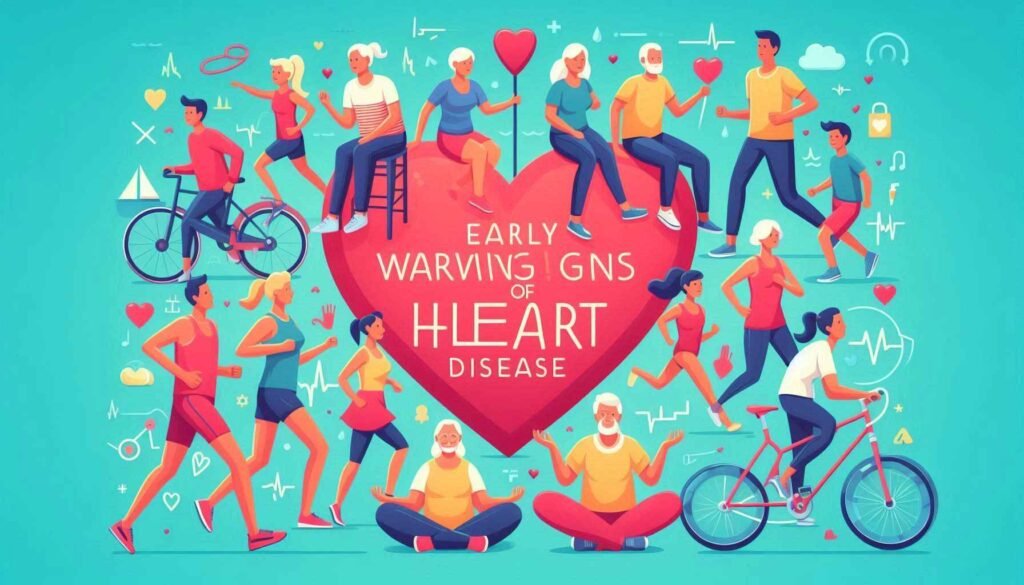
Managing Chronic Conditions in Older Adults: Best Practices for Longevity and Quality of Life
As the global population ages, the need for effective management of chronic conditions in older adults is more critical than ever. From heart disease and arthritis to diabetes and chronic respiratory conditions, these health issues don’t just impact physical well-being—they also affect emotional health, independence, and quality of life. Fortunately, with the right management strategies, older adults can enjoy their golden years in good health. In this post, we’ll explore the best practices for managing chronic conditions in older adults, blending evidence-based strategies with practical, everyday tips to improve health and well-being.
The Scope of Chronic Conditions in Older Adults
Aging often brings about multiple chronic conditions. According to recent studies, nearly 80% of adults aged 65 and older have at least one chronic condition, while 68% have two or more. Conditions like heart disease, diabetes, chronic kidney disease, and arthritis are among the most common. Each of these illnesses requires ongoing management, which can be complicated when multiple conditions exist simultaneously.
Managing chronic conditions effectively is essential not only for prolonging life but also for maintaining independence and quality of life. Without proper management, chronic illnesses can lead to hospitalizations, disability, and a reduced ability to perform everyday activities.
1. The Importance of Regular Medical Check-Ups
Routine medical check-ups are vital for older adults managing chronic conditions. These appointments allow healthcare providers to monitor ongoing conditions, make adjustments to treatment plans, and catch new health issues early. Staying on top of regular screenings—such as blood pressure monitoring, cholesterol checks, and diabetes screenings—ensures that potential complications are caught before they escalate.
For instance, older adults with hypertension should regularly monitor their blood pressure and have annual heart health assessments to reduce the risk of heart attacks or strokes. Similarly, those with diabetes benefit from routine glucose level monitoring and foot care appointments to avoid complications like neuropathy.
Actionable Tip: Keep a Health Journal
Encourage older adults to maintain a health journal where they record their symptoms, medication schedules, and any side effects. This not only helps in tracking their progress but also provides valuable information during medical visits, ensuring more personalized and accurate care.
2. Adherence to Treatment Plans: Medication Management
Older adults often take multiple medications to manage various conditions. This can lead to confusion, missed doses, or, worse, incorrect dosages, which may cause dangerous interactions or ineffectiveness of treatments. Adhering to a prescribed treatment plan is paramount for controlling chronic conditions.
To prevent medication-related issues, caregivers and healthcare providers can utilize tools like pill organizers, mobile apps for medication reminders, or blister packs provided by pharmacies that sort medications by day and time.
Actionable Tip: Simplify Medication Schedules
Work with healthcare providers to streamline medications. Some medications may be combined, and others can be adjusted in timing to reduce complexity, making it easier for older adults to stick to their regimens.
3. The Role of Nutrition in Chronic Condition Management
A balanced diet plays a vital role in managing chronic diseases like diabetes, heart disease, and high blood pressure. For example, older adults with hypertension should reduce salt intake and eat potassium-rich foods like bananas and spinach. Those with diabetes benefit from a diet low in refined sugars and high in fiber to stabilize blood sugar levels.
Many chronic conditions, including arthritis and heart disease, are influenced by inflammation. An anti-inflammatory diet rich in fruits, vegetables, whole grains, and omega-3 fatty acids can significantly improve health outcomes.
Actionable Tip: Meal Planning for Seniors
Create weekly meal plans that focus on nutrient-dense, whole foods. For older adults, it can be helpful to prepare meals in advance or use meal delivery services tailored to specific dietary needs. This makes it easier to stay on track, even during busy or low-energy days.
4. Physical Activity: The Pillar of Healthy Aging
Exercise is one of the most effective ways to manage chronic conditions. Regular physical activity can improve heart health, lower blood pressure, enhance insulin sensitivity, and even reduce the pain and stiffness associated with arthritis. For older adults, exercise doesn’t have to be strenuous to be effective. Walking, swimming, tai chi, and yoga are all low-impact exercises that offer substantial health benefits.
According to the National Institute on Aging, adults aged 65 and older should aim for at least 150 minutes of moderate-intensity aerobic activity per week, paired with muscle-strengthening activities at least two days a week.
Actionable Tip: Incorporate Movement into Daily Life
Encourage older adults to make small changes that increase daily movement—taking the stairs instead of the elevator, going for a walk after meals, or doing light stretches during TV commercial breaks. These simple activities can add up to big health improvements over time.
5. Stress Management and Emotional Health
Living with chronic conditions can be emotionally draining. Stress, anxiety, and depression are common among older adults managing long-term health problems. Chronic stress, in particular, can worsen conditions like heart disease and diabetes, making it crucial to adopt effective stress management techniques.
Mindfulness practices, such as meditation, yoga, and breathing exercises, can help older adults reduce stress and improve emotional resilience. Additionally, support from friends, family, or therapy groups can provide the emotional bolstering needed to navigate health challenges with a positive mindset.
Actionable Tip: Daily Mindfulness Practices
Encourage older adults to spend 10-15 minutes each day practicing mindfulness, whether through meditation, deep breathing, or a simple gratitude exercise. These small practices can make a big difference in managing stress levels and improving emotional well-being.
6. The Importance of Sleep for Managing Chronic Conditions
Adequate sleep is crucial for managing chronic conditions. Poor sleep can lead to worsened symptoms of chronic illnesses like diabetes, hypertension, and heart disease. Older adults should aim for 7-9 hours of sleep each night, with a focus on creating a sleep-friendly environment that promotes restful sleep.
This means keeping the bedroom cool, dark, and quiet, and establishing a consistent bedtime routine. If sleep issues persist, older adults should speak with their healthcare provider, as sleep disorders like insomnia or sleep apnea can exacerbate chronic health conditions.
Actionable Tip: Establish a Bedtime Routine
Encourage older adults to develop a soothing bedtime routine—such as reading, listening to calming music, or drinking a warm, caffeine-free beverage—that signals to their body that it’s time to wind down. Over time, this can lead to improved sleep quality.
7. The Role of Family and Caregivers in Chronic Condition Management
Family members and caregivers play a pivotal role in helping older adults manage their chronic conditions. From assisting with daily tasks and medication management to providing emotional support, caregivers are an essential part of the care team. Open communication between caregivers and healthcare providers ensures that the older adult’s needs are being met and that care is coordinated effectively.
It’s also important for caregivers to take care of their own health, as caregiving can be physically and emotionally demanding.
Actionable Tip: Use Caregiver Support Resources
Caregivers should seek out resources such as support groups or respite care services that can provide relief and help prevent burnout. These services allow caregivers to recharge while ensuring that their loved ones continue to receive proper care.
8. Planning for Emergencies
Managing chronic conditions requires preparedness, especially in emergency situations. Older adults should have an emergency plan that includes a current list of medications, emergency contacts, and a summary of their medical history. This ensures that in the event of a medical emergency, first responders and healthcare providers have the information they need to provide appropriate care.
Actionable Tip: Create an Emergency Care Kit
Prepare an emergency care kit that includes medications, a copy of insurance information, medical contact numbers, and any other essential items like hearing aids or glasses. Keep this kit in an easily accessible location.
9. Conclusion: A Holistic Approach to Chronic Condition Management
Managing chronic conditions in older adults requires a comprehensive approach that addresses both physical and emotional well-being. Regular medical check-ups, adherence to treatment plans, nutritious eating, physical activity, stress management, and the support of caregivers all play essential roles in maintaining health and improving quality of life.
By following these best practices, older adults can take control of their health, manage their chronic conditions more effectively, and enjoy their later years with a greater sense of independence and fulfillment.



